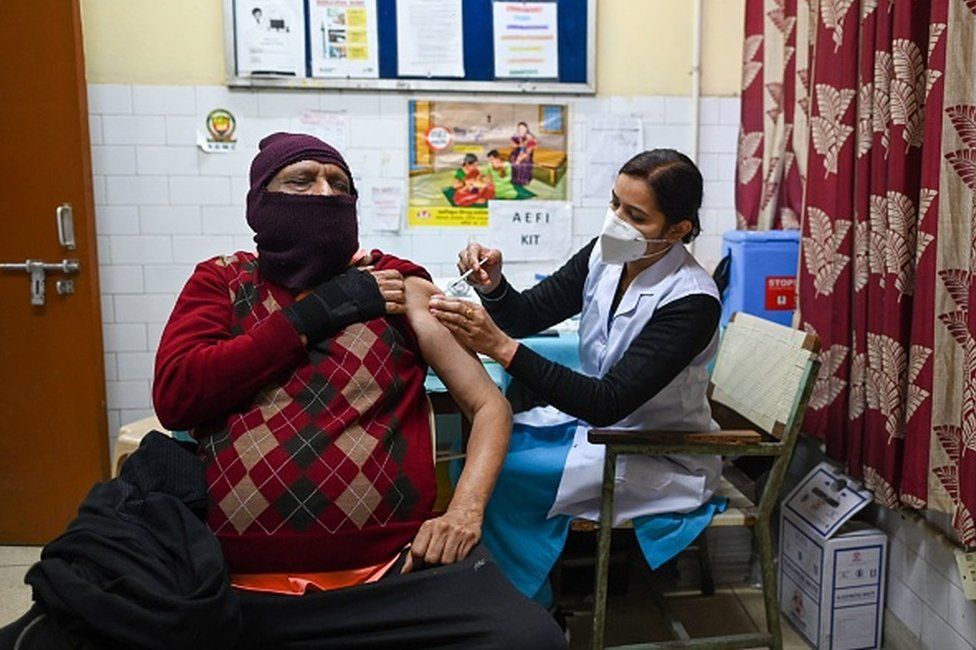
India has begun giving booster doses of the Covid-19 vaccine to priority groups amid a surge in infections. Health and frontline workers and people above 60 years with comorbidities are currently eligible to take the jab. The drive began as India battles a spike in Covid cases fuelled by the Omicron variant of the coronavirus.








